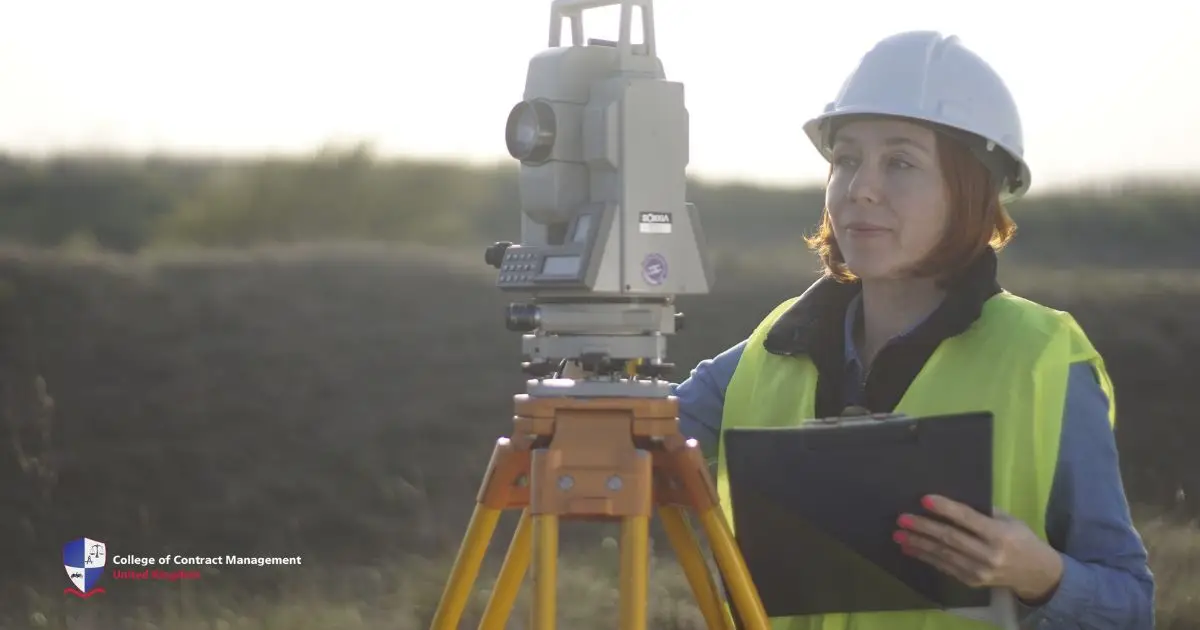Building roads, bridges, buildings, and houses costs a lot of money, and it’s important to track that money to ensure the project's success. Now, there are many things to pay for, such as materials and workers, so without careful planning, the costs can easily become too high. That’s what is a quantity surveyor for; they ensure the project stays within the budget and is built correctly.
In this article, you will learn what is a quantity surveyor, what their responsibilities are, and how a career in this profession can grow over time. You’ll get a clear understanding of why quantity surveyors are important in construction projects and how they help keep things on budget and running smoothly. Plus, you’ll see the opportunities available for anyone who chooses to pursue this career.
What is a Quantity Surveyor?
A quantity surveyor is a professional who manages the budget and quality of a construction project. This means that they ensure the budget is adhered to, manage costs, and keep the project within financial limits. Moreover, they ensure that the quality of the work is aligned with the allocated budget. In simple terms, a quantity surveyor's role is to make sure that the quality of the construction work is appropriate for the given budget.
A quantity surveyor plays a really important role in construction. As mentioned above, the absence of this role can cause a project to not go well or even fail. To elaborate, without quantity surveyors, it's much harder to keep track of costs and ensure everything is built properly. In the worst case, the project could fail because there's no one to manage the money and ensure it's spent wisely.
Responsibilities of a Quantity Surveyor
The main responsibility of what is a quantity surveyor is to ensure that the budget is followed while keeping great quality of the project. However, to fulfil that, there are other responsibilities that they have to take. Some of their responsibility are: Planning and Budgeting, Client Interaction, Contracts & Negotiations, Cost Control, and lastly, Compliance & Quality.
A quantity surveyor’s job starts when a construction project is being planned and continues all the way until it's finished. Aside from overseeing the project quality and cost, they also talk to the client to ensure that, the project isn’t just built to standards but also matches the client’s vision and wants.
Planning and Budgeting
A quantity surveyor starts by helping figure out if the project is possible and how much it will cost. They calculate how much money is needed for things like materials, labour, and time. They also create a detailed plan to make sure the project stays on track and within the budget.
Client Interaction
Now that the planning is set, what is a quantity surveyor going to do? Here, a quantity surveyor communicates with the client to make sure they understand what the client wants. They update the client on how the project is going and solve any problems that come up. They make sure the project looks the way the client wants it and meets their expectations.
Contracts & Negotiations
As the project moves forward, the next step involved among the responsibilities of what is a quantity surveyor is to prepare contracts that explain what the job will cost, how long it will take, and what needs to be done. They also talk with contractors and subcontractors to agree on the details and make sure everyone understands what’s expected.
Cost Control
While the project is happening, the quantity surveyor keeps track of how much money is being spent. They look for ways to save money without ruining the quality of the work. They also update the client regularly to make sure the project stays on budget.
Compliance & Quality
Finally, when the project is almost finished, the last step taken by what is a quantity surveyor is to check that everything is being built according to the law and meets safety rules. They make sure the project is not only finished on time but also built well and to the highest quality standards.
4 Quantity Surveyor Levels and Salary UK
Just like with other jobs, being what is a quantity surveyor has different levels based on how much you know and how much experience you have. First, this career starts as an assistant, where you learn the basics. As you get better and gain more experience, you move up to an intermediate role. After that, you can become a senior, where you take on bigger tasks. Finally, you can reach a managerial or leadership position, where you lead teams and make important decisions. In addition to that, as you move up these levels, your salary increases because you’re taking on more responsibility.
1. Graduate and Assistant Quantity Surveyors: £27,000 to £40,000
This is where you start, usually after finishing a degree in quantity surveying. At this stage, you help more experienced surveyors with tasks like managing contracts, predicting costs, and tracking profits and losses. At this level, what is a quantity surveyor going to do involves focusing on learning the role rather than taking responsibility. It usually takes about two to three years to move up to the next level.
2. Intermediate Quantity Surveyors: £37,500 to £55,375
At this level, you work more on your own and handle bigger or more complicated projects. You’ll be responsible for costing projects, making reports about how much they’re spending, and talking to clients.
3. Senior Quantity Surveyors: £50,000 to £79,000
A Quantity Surveyor at this stage manages a whole project from start to finish. This means figuring out how much things will cost, sticking to a budget, and working with suppliers. Senior Quantity Surveyors usually have over 5 years of experience and also help train others. If you become a Chartered Quantity Surveyor, it means you have a lot of experience and can get more career opportunities.
4. Managerial and Leadership Positions: £70,000 to £85,000
After around 10 years in the field, you can reach high-level positions like Managing Quantity Surveyor or Commercial Manager. These jobs require a deep understanding of the industry and involve making big decisions for the company.
How to be what is a quantity surveyor
There are three different ways that you can be what is a quantity surveyor: you can apply for a bachelor's, undergo an apprenticeship, or get a certification. Each of these processes has similarities and differences with each other. Moreover, each one has also its pros and cons. All in all, whichever way you may choose, the end of each is sure to lead to becoming what is a quantity surveyor.
The journey to becoming a quantity surveyor is not always easy, but it is a rewarding and worthwhile career path. So, how do you become what is a quantity surveyor? The following are options you can choose from to suit your needs and goals.
Earning a Bachelor's Degree
This is the most common route and involves completing a university degree in quantity surveying or a related field. Many universities offer programmes accredited by the Royal Institution of Chartered Surveyors (RICS), which can help with career advancement. A degree provides a strong foundation in construction, cost management, contracts, and project planning. It typically takes 3-4 years to complete.
- Pros: Recognised worldwide, provides in-depth knowledge and offers more career opportunities.
- Cons: Expensive and time-consuming compared to other routes.
Completing an Apprenticeship
An apprenticeship allows you to earn while you learn. Instead of going to university full-time, you work with a company as a trainee while studying part-time. This hands-on experience helps develop practical skills alongside theoretical knowledge. Apprenticeships can take 2-5 years, depending on the programme.
- Pros: Gain real-world experience while learning what is a quantity surveyor, earn a salary while learning, and avoid student debt.
- Cons: Takes longer to qualify, and career growth may depend on the employer’s training programme.
Obtaining a Certification
If you already have experience in a related field, you can take a certification course instead of a full degree. Certifications, such as the Level 5 Advanced Diploma in Quantity Surveying from the CCM, allow professionals from construction, engineering, architecture, or finance backgrounds to transition into quantity surveying. These programmes are often shorter and more flexible than degree programmes.
- Pros: Faster than a degree, cost-effective, and great for career changers.
- Cons: May require prior experience or education, and career growth might be slower without a degree.
Demand for Quantity Surveyors
In line with the growth of a place is also the abundance of construction on infrastructures. This means more and more quantity surveyors are needed to help manage the costs and make sure the construction is done right. However, not many people choose this career, so there’s a shortage of quantity surveyors. Because of this, the demand for quantity surveyors is high, which means it’s a great job to have with lots of opportunities.
The College of Contract Management offers Quantity Surveying courses to help people learn what is a quantity surveyor. These courses can give you the knowledge and training to become a professional quantity surveyor, opening doors to a rewarding career with strong job security and growth potential.





